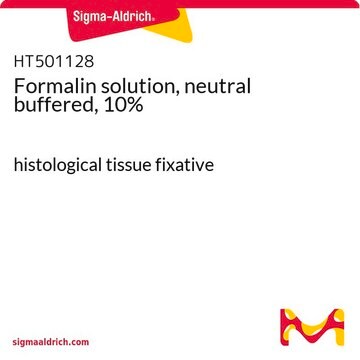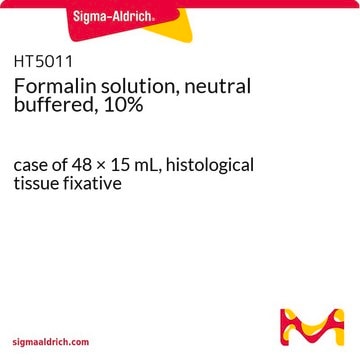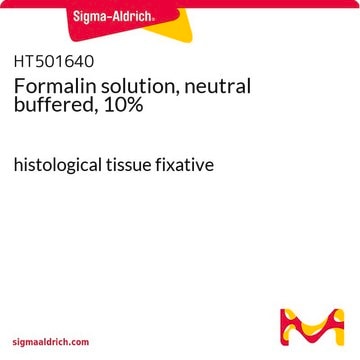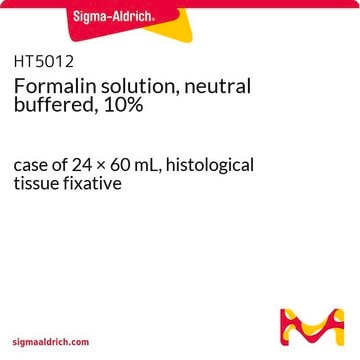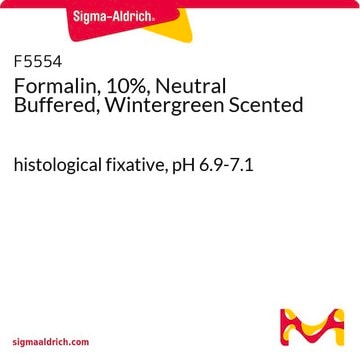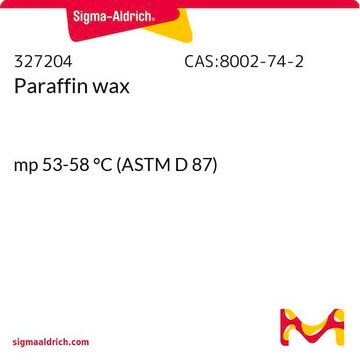HT501320
Formalin solution, neutral buffered, 10%
histological tissue fixative
Synonym(s):
Formaldehyde, Methanal
About This Item
Recommended Products
biological source
synthetic
concentration
10% formalin (approx. 4% formaldehyde)
color
colorless
pH
6.90-7.10
density
1.080 g/cm3
application(s)
hematology
histology
storage temp.
room temp
InChI
1S/CH2O/c1-2/h1H2
InChI key
WSFSSNUMVMOOMR-UHFFFAOYSA-N
Looking for similar products? Visit Product Comparison Guide
General description
Application
Packaging
Physical form
Signal Word
Danger
Hazard Statements
Precautionary Statements
Hazard Classifications
Acute Tox. 4 Inhalation - Acute Tox. 4 Oral - Carc. 1B - Muta. 2 - Skin Sens. 1
WGK
WGK 3
Personal Protective Equipment
Certificates of Analysis (COA)
Search for Certificates of Analysis (COA) by entering the products Lot/Batch Number. Lot and Batch Numbers can be found on a product’s label following the words ‘Lot’ or ‘Batch’.
Already Own This Product?
Find documentation for the products that you have recently purchased in the Document Library.
Customers Also Viewed
Our team of scientists has experience in all areas of research including Life Science, Material Science, Chemical Synthesis, Chromatography, Analytical and many others.
Contact Technical Service